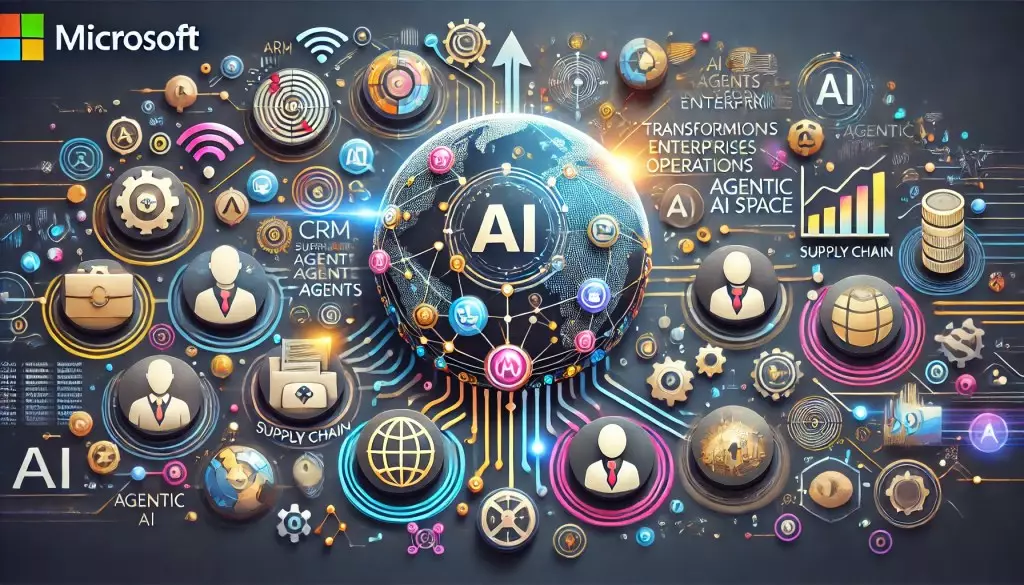In the realm of artificial intelligence, the landscape is continuously evolving, often defined by major milestones and transformative breakthroughs. At Ignite 2024, Microsoft made headlines with its announcement of ten autonomous AI agents designed specifically for enterprise applications. This strategic move signifies a pivotal moment in the journey of AI from mere theoretical constructs to practical tools that can revolutionize organizational workflows. As companies increasingly seek to harness the potential of AI, Microsoft’s initiative serves as a beacon for what is achievable in the enterprise sector.
Unlike traditional AI solutions that often require extensive customization and considerable investment, Microsoft’s autonomous agents come pre-configured for various enterprise functions. This is a game-changer for businesses that want to implement AI without the hassle of developing solutions from the ground up. Whether it’s in the realms of customer relationship management (CRM), supply chain operations, or financial reconciliation, these agents promise to facilitate enhanced efficiency and productivity. Organizations can deploy them quickly, reaping the benefits immediately, rather than waiting for prolonged development periods.
Furthermore, Microsoft’s approach to these agents provides a distinctive advantage. With an established ecosystem of productivity applications and integration capabilities, Microsoft has positioned itself as a leader in the burgeoning field of enterprise AI. This development is not merely a matter of technology; it represents a strategic repositioning in how enterprises can leverage AI to forge ahead in competitive markets.
The sheer scale of Microsoft’s AI initiative is noteworthy, encompassing around 1,400 third-party connectors and over 1,800 large language models (LLMs). This extensive framework allows businesses to tailor agents according to their unique operational demands. The capacity for customization gives enterprises a degree of flexibility that is often lacking in off-the-shelf AI solutions.
Attracting approximately 100,000 organizations to develop and customize agents is an impressive feat. The rapid deployment rates, reportedly doubling in just one quarter, reflect a growing enthusiasm and acknowledgment within the business community of the value these tools can provide. In a landscape marked by incremental changes from competing entities like Salesforce and ServiceNow, Microsoft’s robust ecosystem offers a holistic solution that challenges the status quo.
While Microsoft enjoys a strong position today, the competitive landscape is fiercely contested. Major players like Google, AWS, and emergent open-source frameworks are continually vying for a share of the enterprise AI market. Microsoft’s current lead, characterized by its extensive capabilities and customer reach, may not be indefinitely sustainable. That said, it is Microsoft’s strategic planning and execution that may allow it to maintain an edge over these competitors.
The implications of this AI revolution stretch beyond organizational efficiency. By redefining how companies conduct their business processes, Microsoft is simultaneously challenging startups and existing players that specialize in niche services, such as lead scoring or time management. With every advancement, the landscape of labor and technology integration is further transformed.
Moreover, Microsoft is redefining the value proposition in the AI landscape by moving away from traditional pricing models based on usage, such as “per token” or “per message.” This shift toward assessing value on “per outcome” grounds indicates a broader understanding of AI capabilities. Enterprises are no longer merely seeking raw output from language models; they demand actionable insights and productivity gains that justify their investments.
As we delve deeper into the implications of Microsoft’s strategic move, it is clear that the introduction of autonomous AI agents marks a transformational phase for enterprises. The blend of pre-built functionality, extensive integration options, and a focus on outcomes presents a compelling case for adoption. However, as the market matures, companies must remain vigilant and responsive to innovations from competitors.
The dialogue around AI is evolving, and organizations that adapt quickly to these changes will likely lead the charge in realizing the full potential of artificial intelligence in the enterprise setting. As Microsoft forges ahead, the question remains: how will other players evolve in response to this significant shift? The future of enterprise AI is not just about technological advancements; it’s about strategic foresight and the agility to leverage these innovations effectively.


Leave a Reply